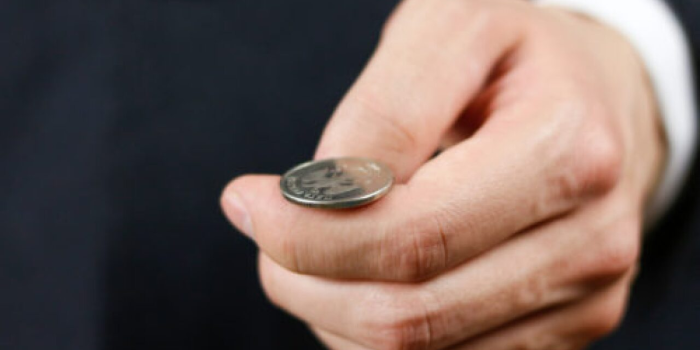The age-old practice of settling decisions with a coin toss, often considered a fair 50-50 chance, has been called into question by a new study.
A group of European researchers undertook an extensive investigation, possibly the largest of its kind, to explore the fairness of coin flips. Their findings reveal “overwhelming evidence” of a same-side bias, indicating that coins are slightly but significantly more likely to land on the side they started on, challenging the notion of coin flips as genuinely random.
The study, which is currently awaiting peer review, sheds light on a long-standing conjecture, building upon the work of Stanford mathematician and magician Persi Diaconis, who 2007 suggested the presence of a same-side bias in coin flips. Diaconis’ estimate at the time proposed a 51 percent likelihood of a coin landing on the initial side, indicating a mere one percent difference from a perfect 50-50 outcome.

In this recent experiment, the researchers engaged 48 participants, including themselves, in performing 350,757 coin flips. The results showed that the coins landed on the same side 50.8 percent of the time, with slight variations among individual coin flippers.
To understand this phenomenon, it is essential to consider what happens to a coin once it leaves a person’s thumb, based on Diaconis’ model. Flipping introduces a small degree of precession or wobble to the coin as it tumbles through the air. This wobbling influences one side to spend more time facing upward. The more time spent in this position, even if it is minimal, increases the likelihood of the coin landing on the same side.

The less than one percent difference in coin flip outcomes may appear inconsequential, but it can have significant implications in practical scenarios. František Bartoš, the study’s lead author, illustrated this by stating that if one were to bet a dollar on the outcome of a coin toss 1,000 times, knowing the starting position of the coin toss could yield an average of $19 in earnings.
This may seem modest, but over time, it can accumulate, presenting an advantage comparable to specific casino games.


